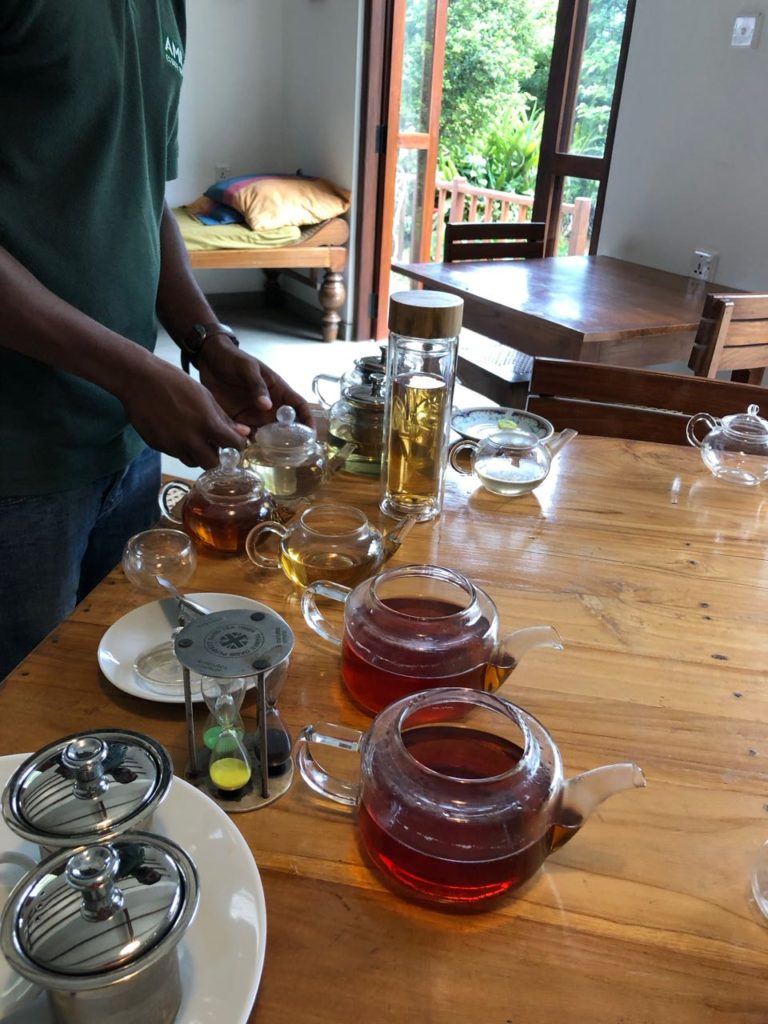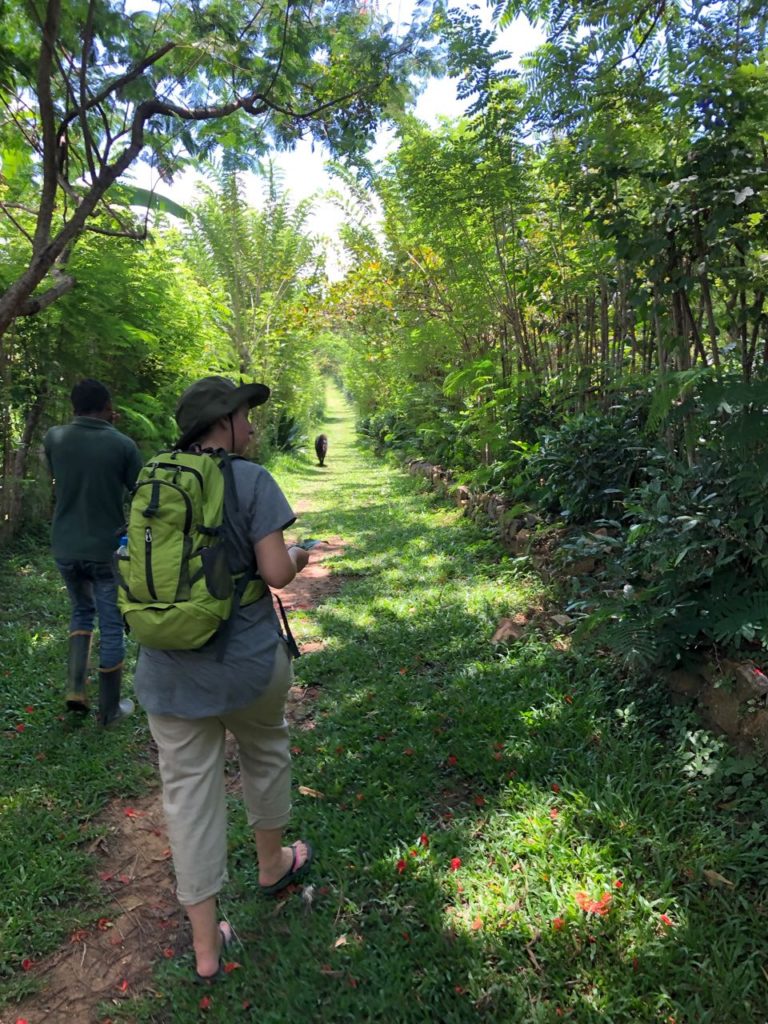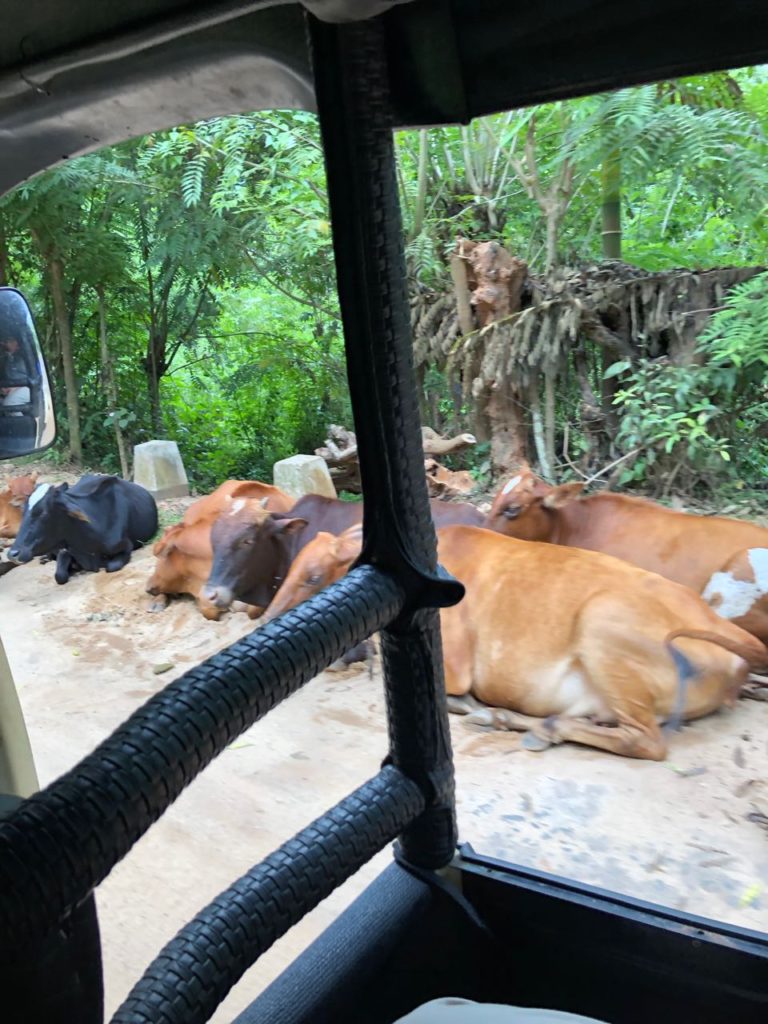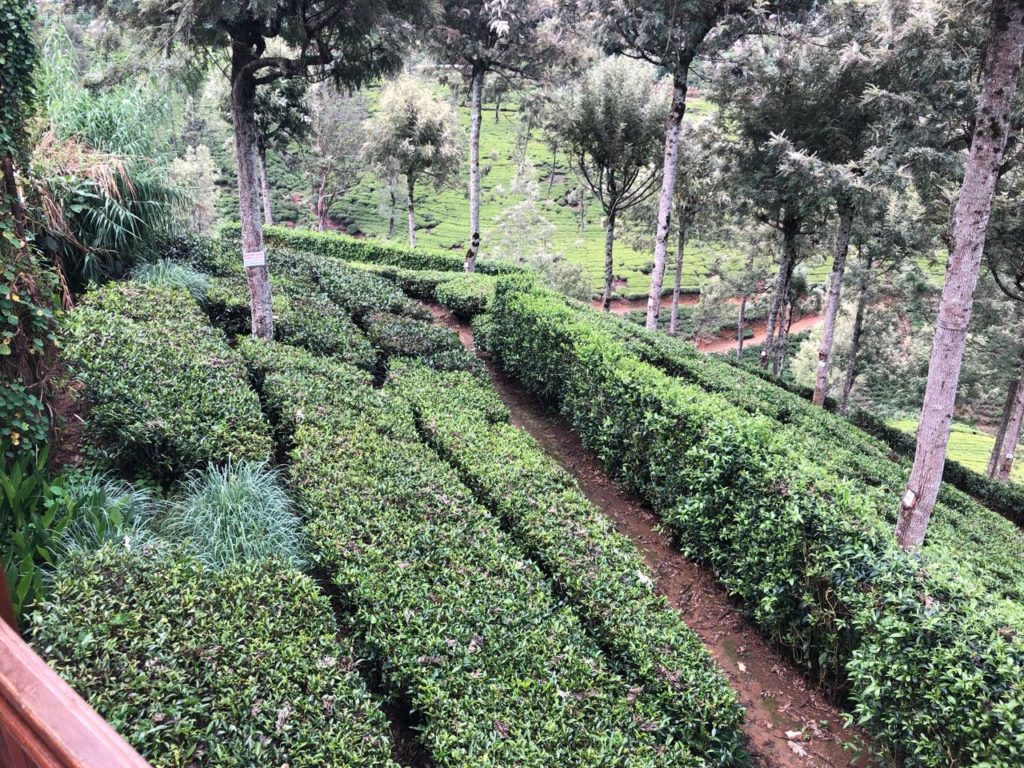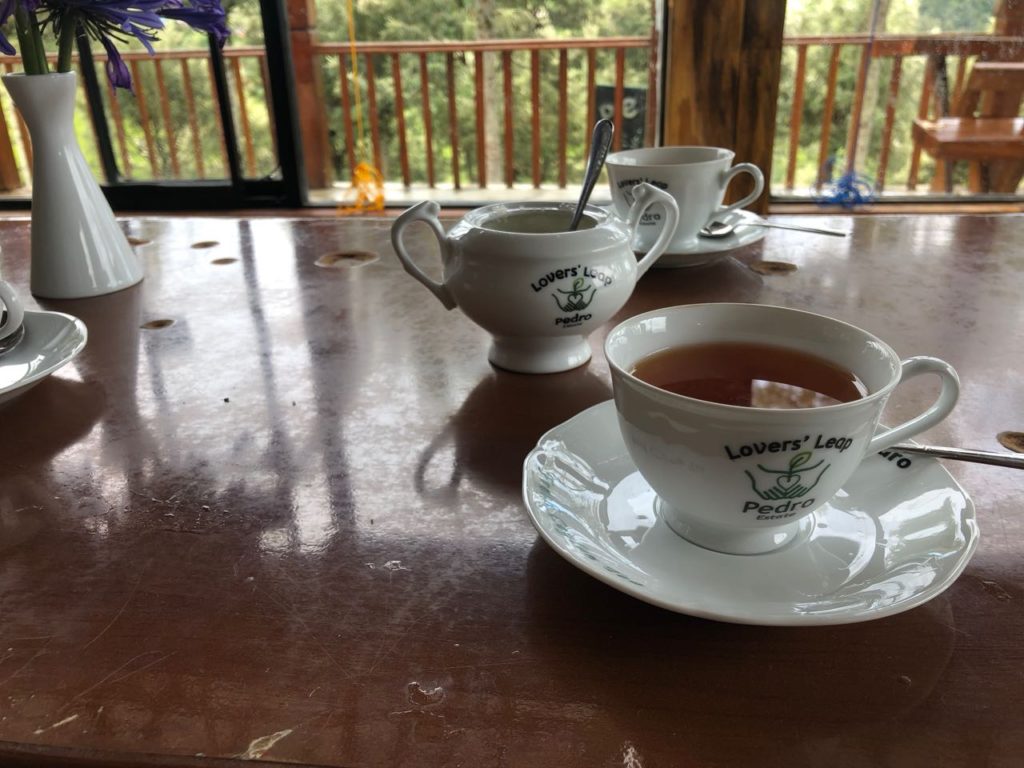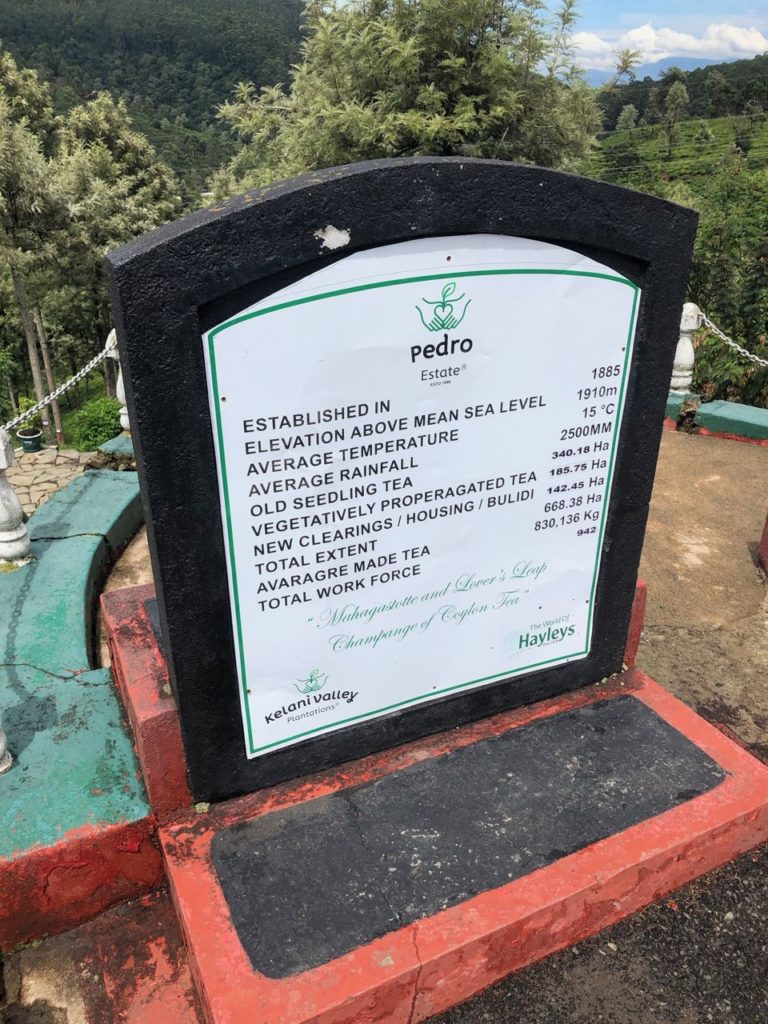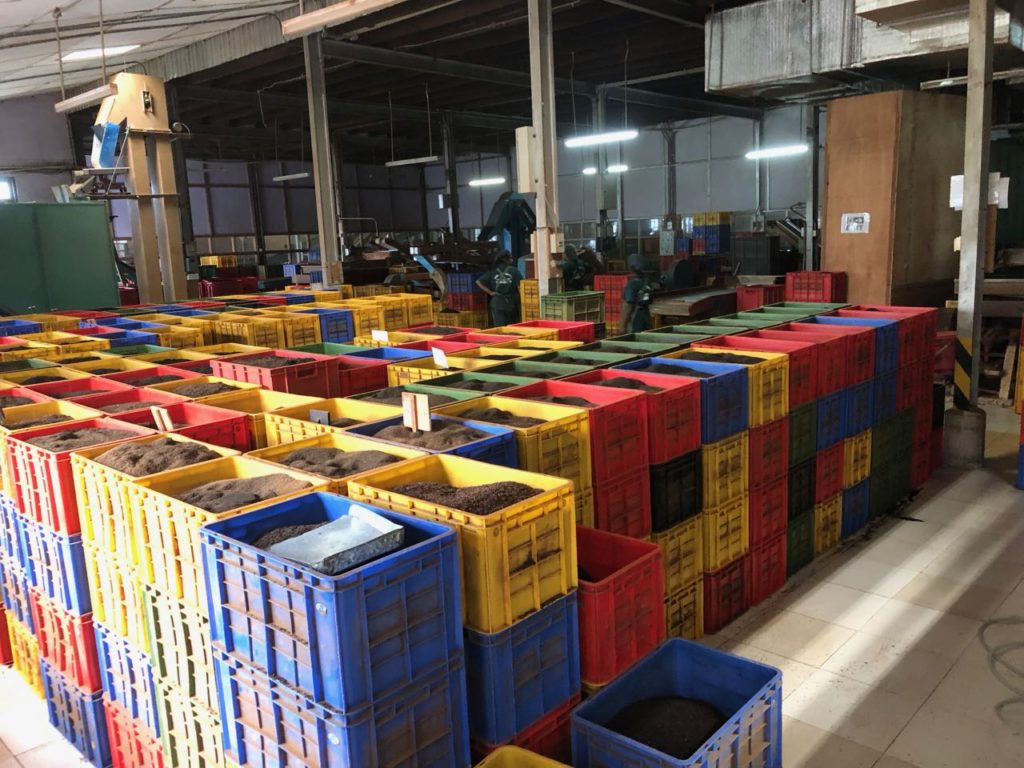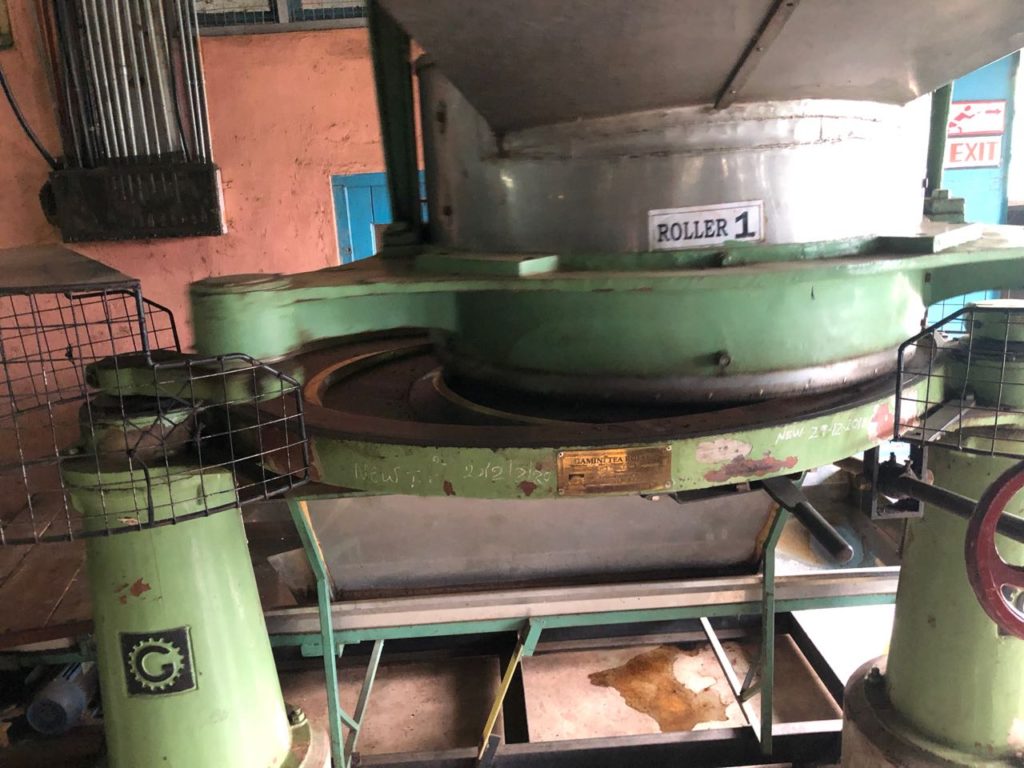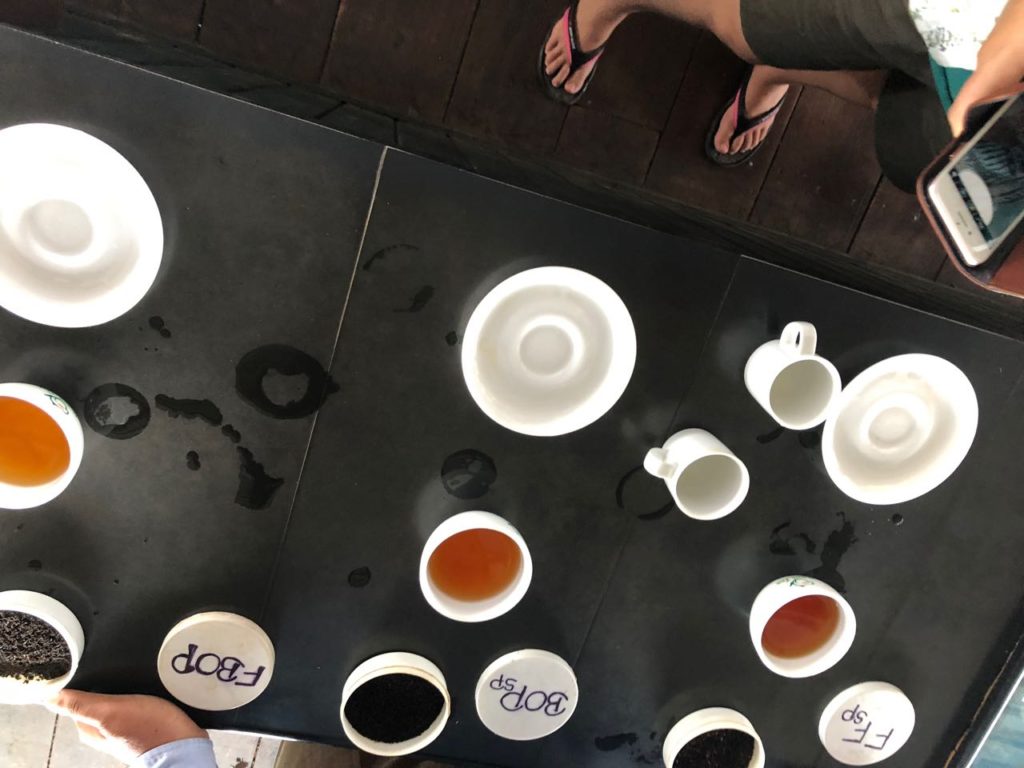Tea Production Overview
The Sri Lanka Tea region that we visited consisted broadly of Kandy->Nuwara Eliya -> Ella. In this region we visited three different tea plantations. AMBA – one that is organic, small scale, and nearly completely hand made. Pedro – an ethical midsized company. They had a lot of mechanized production, but still a lot of hand steps between the machines. Lastly we visited Halpe Tea factory, which was fully automated and produces (literally) tons of tea per day. I was really happy to see all three.
The basic idea with black tea processing is you dry out (wither) the tea leaves, roll them around under pressure (via hand at AMBA, using machines at the others), let them oxidize for a while, then dry them out and you have black tea. The whole process from tree to tea takes about 24 hours. For more information see the Wikipedia Tea Article. Keep reading below to see what we thought of each one.
AMBA Tea Plantation- small hand crafted tea
This tea planation has an extensive tour which lasts about an hour. The tour is free but they charge 500LKR for tea sampling afterwards which I highly recommend. We tried close to 12 varieties of tea at the sampling. As a small producer they often have limited selection of tea available for purchase, but due to the loss of tourism after the Easter Attacks they had nearly everything when we went.
The tour consisted of an outdoor portion learning about the tea plants and how they are farmed, and a portion inside their workhouse. In the workhouse they showed us some of the handmade methods they use. They had a mechanical roller they used for some of their black tea, but it looked like a toy compared to the industrial sized machines we saw at the others.
Info Box: AMBA Tea Plantation
Google Maps link to AMBA Tea Plantation
Cost: Tour Free @ 11am, LKR1000 for private tour(reserve with them, same as free tour, just not at 11am), tasting LKR500
Time: About 3.5 hours total from Ella Town, ~40 min one way Tuk Tuk, 1 hour tour, half hour tasting.
Exertion Level: Very low (a few steps, less than 200 meters of walking)
Pedro Tea Plantation – mid sized ethical tea production
Pedro tea is know for it’s ethical tea production and fair wages paid to it’s workers. During our tour all the factory workers looked happy and the conditions were all good. This tour and the Halpe tea tour below were similar in that both had large equipment that mass produced tea. The Pedro factory had a lot of human steps in between (for example moving the tea from one are to another by hand) but the machines were largely similar. Like all three tea tours we were the only tourists there during this time of travel advisories, but as we left another couple arrived so I hope they will do well again soon!
This tour cost LKR500 per person, and came with tea at the end. The shop of course had all their varieties of tea.
Info Box: Pedro Tea Plantation
Google Maps link to Pedro Tea Plantaion
Cost: LKR500 per person includes tour and a cup of tea
Time: Tour is about 20 minutes, tasting and shopping at your pace
Exertion Level: Very Low (climb a few stair cases in the factory, less than 200 meters of walking)
Halpe Tea Plantation – large scale tea production
Halpe Tea factory was the most mechanized we saw, conveyor belts and machines did all the heavy lifting. They even had an advanced machine that used optical imaging to seperate big and little pieces of tea off a 2 story system of belts! While this was a large automated factory, we really enjoyed the tour. The final tea quality was quite good. They are set up for tourists and I think the driver may even get a little kickback, our tuk-tuk driver seemed very happy to take us there! Oddly enough all the prices were in US$, and I think you could pay in US$ cash. The only other place we saw this in Sri Lanka was the airport.
The factory was built in the 60’s, and has been expanded on since then. They had two floors of withering tables that could hold over 1,200kg of wet leaves each! The tea was taken via a hooked bucket system to a scale that weighed out 320kg at a time into the rolling machines. Then it went to drying, sorting, and packaging. When we were there in the early afternoon the withering tables were empty, but everything else was running. The leaves apparently start arriving around 4pm from the fields to wither overnight. We read that everything was going early in the morning, but I think the tour is interesting even without the machines running. Below is a quick video of Roller #1 in action.
Info Box: Halpe Tea Plantation
Google Maps link to Halpe Tea Plantaion
Cost: US$5 per person includes tour and four samples of tea
Time: Tour is about 20 minutes, tasting and shopping at your pace
Exertion Level: Very Low (climb a few stair cases in the factory, less than 200 meters of walking)
Conclusion
All three tea factories were worth a visit. If I had to pick only one I would think all had something to offer. The mid and large scale ones were similar, AMBA stood out for it’s extensive tour and hand made tea; however, you won’t get the idea of how your home tea is made from this tour.
